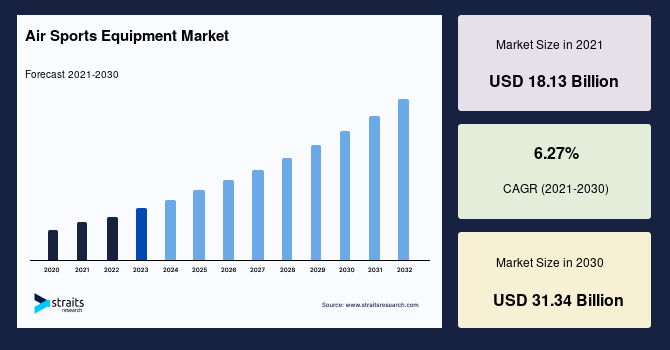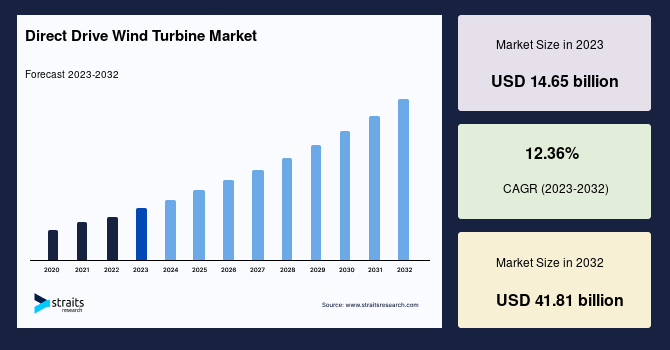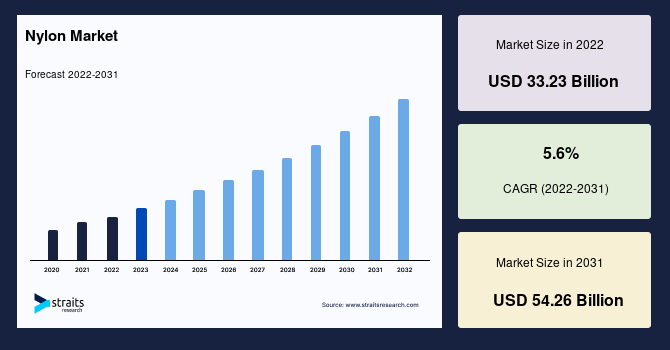Synthetic Fuels and Net-Zero Goals: A Match Made for Sustainability?

Strong 8k brings an ultra-HD IPTV experience to your living room and your pocket.
Synthetic fuels, or synfuels, are produced using processes like gasification of coal and biomass or reforming natural gas to create syngas, which is then converted into liquid or gaseous fuels. These fuels offer a cleaner alternative to conventional fossil fuels.
As of 2023, the global synthetic fuels market was valued at $48.4 billion and is expected to grow to $70.1 billion by 2030 at a 5.4% annual rate. The aviation industry is a key area of focus, with sustainable aviation fuel (SAF) currently making up just 0.3% of global jet fuel consumption. This share is projected to rise to 0.7% by 2025. However, production is lagging, with only 1 million tons of green jet fuel produced in 2024, falling short of the 1.5 million-ton target due to high biorefinery costs.
You can access more at https://straitsresearch.com/report/synthetic-fuels-market
In the U.S., domestic SAF production is set to expand significantly, with capacity expected to increase fourteen-fold by 2024 to nearly 30,000 barrels per day. Major contributors include facilities like Phillips 66's Rodeo and Valero’s Diamond Green projects. Meanwhile, South Africa’s Sasol operates the world’s largest coal-to-liquids facility, producing 160,000 barrels per day, and Qatar’s Pearl GTL plant converts natural gas into petroleum liquids at a rate of 140,000 barrels per day.
Private investment is playing a crucial role in synthetic fuel development. Companies like Sunfire in Germany are receiving funding to scale up power-to-liquids technology, showcasing the potential for commercialization. However, high production costs remain a major challenge. Advanced technologies like carbon capture and Fischer-Tropsch synthesis require significant capital investment, making synthetic fuels more expensive than conventional options.
Despite these hurdles, synthetic fuels hold promise for reducing emissions and improving energy security. With continued investment and technological progress, the industry is on track for substantial growth in the coming years.
The oxy-combustion process offers a cost-effective solution for carbon capture, making it more affordable than the cost of emitting CO₂. This innovative approach enhances sustainability while keeping expenses in check.
When it comes to fuel conversion, the Methanol-to-Gasoline (MTG) process efficiently transforms 47% of the input methanol into synthetic gasoline. This demonstrates a promising yield, making it a viable alternative to conventional fuel sources.
Looking ahead, synthetic fuels have the potential to become more cost-competitive than traditional fossil fuels. As technology advances and production scales up, prices could drop, making them an attractive option for a cleaner energy future.
Additionally, green hydrogen production costs could fall below €1 per kilogram in an optimal scenario. This breakthrough would significantly boost the adoption of hydrogen as a key energy source, driving progress toward a more sustainable economy.
Global synthetic fuel production remains relatively small, with a total capacity of around 240,000 barrels per day (bpd)—just 0.24% of the world’s total oil refining capacity of 100 million bpd. The majority of this comes from Sasol’s coal-to-liquid (CTL) facility in Secunda, South Africa, which produces approximately 150,000 bpd, making it the largest commercial synthetic fuel plant in the world. Other major producers include Shell in Malaysia and Qatar, along with Qatar Petroleum, both utilizing gas-to-liquid (GTL) technology. Diesel is the primary synthetic fuel produced, playing a crucial role in industrial and transportation sectors. While synthetic fuels remain a niche market, they are gaining momentum as the world seeks cleaner, more sustainable energy solutions.
Ask for customization @ https://straitsresearch.com/report/synthetic-fuels-market/request-sample
Segmentation
By Production Method
Fischer-Tropsch Synthesis
Methanol to Gasoline (MTG)
Electrolysis-based Methods
By Applications
Gasoline
Diesel
Jet Fuel
By End-User
Transportation
Power Generation
Industrial
Detailed segmentation @ https://straitsresearch.com/report/synthetic-fuels-market/segmentation
List of Key Players
Audi AG
Royal Dutch Shell Plc
ExxonMobil Corporation
Sasol Limited
PetroChina Company Limited
Indian Oil Corporation Ltd.
Reliance Industries Ltd.
Phillips 66 Company
LanzaTech Inc.
Note: IndiBlogHub features both user-submitted and editorial content. We do not verify third-party contributions. Read our Disclaimer and Privacy Policyfor details.







